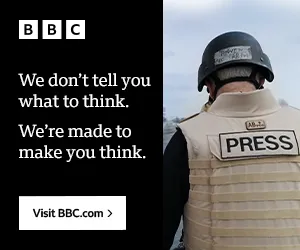The African Sovereign Wealth Funds Index 2018 provides an overview of Africa’s sovereign wealth funds and how they can be used to leverage growth. Michael Kottoh, co-author of the report and strategic director of AfroChampions, explains its approach.
What is the goal of the African Sovereign Wealth Funds Index 2018?
The idea was not only to get an overview and comparison of Africa’s sovereign wealth funds, but also to examine how they are used, and how suitable they are for helping to finance African economies. Worldwide, sovereign wealth funds represent a total of $7 trillion. We listed 12 sovereign wealth funds in Africa, totalling $90bn. This is far too small an amount, especially when we look at the need to finance infrastructure throughout the continent. This need represents $90bn just by itself. At the same time, it’s clear that these funds, as an idea, are becoming more prominent in Africa. Of the funds we looked at, five have been created since 2011 and seven countries currently plan to create one. We can expect to have around 20 sovereign wealth funds in the near future.
What goals need to be set for these funds in order for them to contribute to transforming African economies?
Sovereign wealth funds have to fulfil certain national objectives, which depend on the country in question. We found three main objectives. The first is putting money aside for future generations, the second is stabilising public investment or expenditure during economic downturns, and the third is financing infrastructure. African economies need the funds to be used much more for the third objective. The funds need to be invested in infrastructure, but this also needs to be productive. This isn’t happening enough. Some funds are being invested in international capital markets instead of within the country that owns them.
The main topic of your report and your index is “relevance”. How do you go about measuring this?
It’s all based on the idea that sovereign wealth funds should contribute towards economic development in their country, or in the continent as a whole. We divided the index into four indicators. First is governance, which is a key point as the funds need to be managed competently, transparently and effectively. The second indicator is the size. Sovereign wealth funds need to have significant leverage when it comes to financing expensive infrastructure. The third is serving the public. Sovereign funds require clear objectives set from the government for domestic investment. Lastly, they shouldn’t depend on only one source of investment; they need durability.
You consider transparency and governance to be vital, but was it straightforward for you to get together all the information about the funds and what they’re used for?
Sovereign wealth funds are traditionally quite secretive and tend to be opaque. Our work is based on publicly available information and reliable sources, but some information was difficult to come by. Nonetheless, governance is an essential point, which is why it represents more than a third of the index. From the moment when the funds begin investing more in the national economy, it is important to locate strategic partners for the funds, both domestically and internationally. International investors will stay away if there’s no transparent information. Transparency and publishing accurate finances are a way of preventing the funds from being misappropriated by those in power. The Nigerian, Ghanaian and Angolan funds are the benchmark for transparency, as they publish their accounts online. We want to raise awareness of the need for transparency, which is vital for a fund to be effective.
These funds have a culture of their own, with national objectives. Are they in a position where they can work on joint projects, taking into account the amount of transnational infrastructure needed to develop African economies?
Strategic dialogues are already being put together. I think that there are some agreements between the Moroccan and Nigerian funds, and between the Moroccan and Ghanaian funds or the Gabonese and Angolan funds. These dialogues are an encouraging start, but we need to go further still if we want to develop a joint working platform and invest together. This is why AfroChampions brought the African sovereign wealth funds together in Accra as part of the
“Sovereign Wealth Fund Summit”. The representatives agreed to draw up a joint roadmap so that they could share best practices and deepen cooperation among themselves.
Was the private sector involved in this initiative?
All the representatives from the private sector took part in the debate, as did the consultancy and strategic sector, the legal sector, and institutions and public bodies. The Ghanaian government made sure to have the initiative welcomed from the highest level, with its vice president introducing the debates. We stand to discover a lot of potential in developing synergies between these funds, and all of the stakeholders are now aware of this.
Want to continue reading? Subscribe today.
You've read all your free articles for this month! Subscribe now to enjoy full access to our content.
Digital Monthly
£8.00 / month
Receive full unlimited access to our articles, opinions, podcasts and more.
Digital Yearly
£70.00 / year
Our best value offer - save £26 and gain access to all of our digital content for an entire year!

 Sign in with Google
Sign in with Google 





